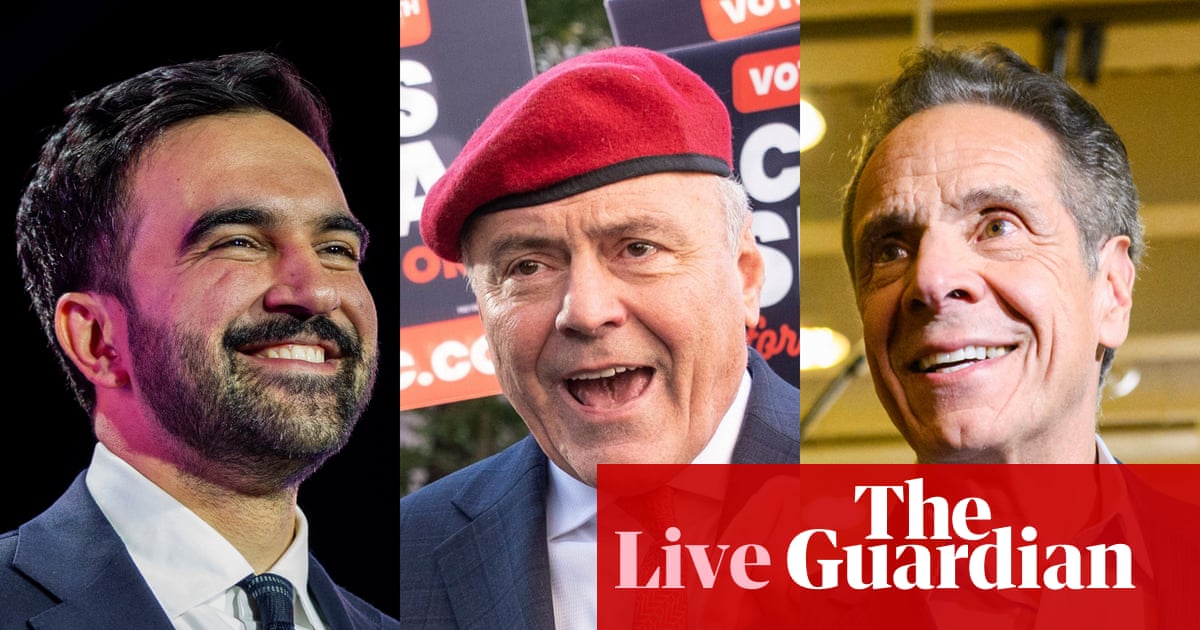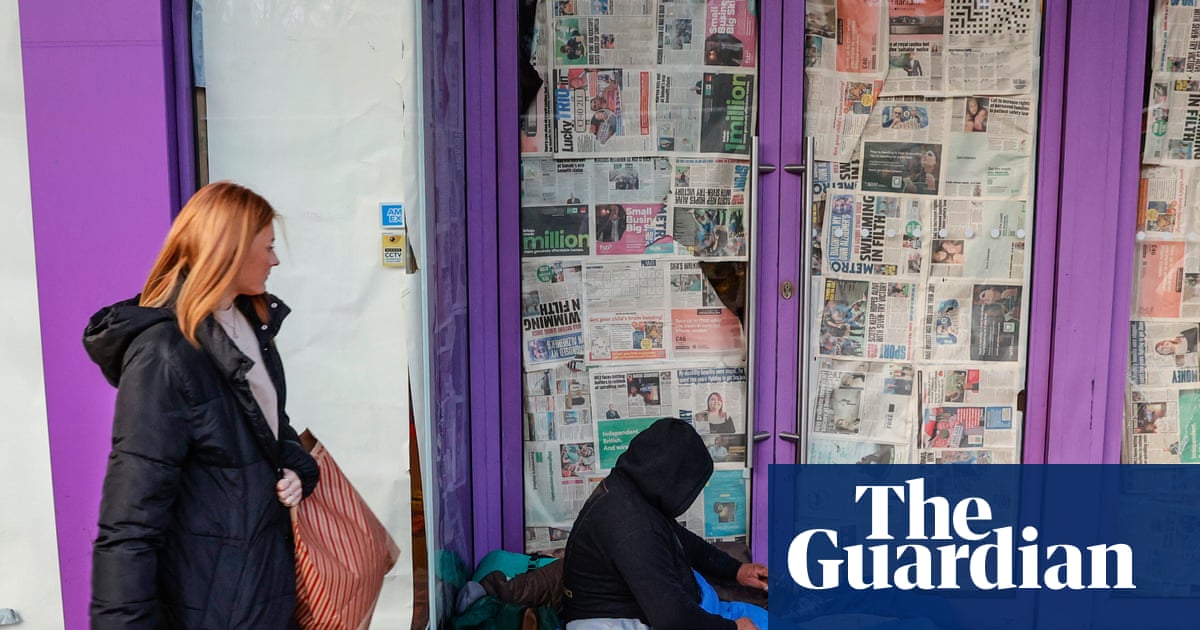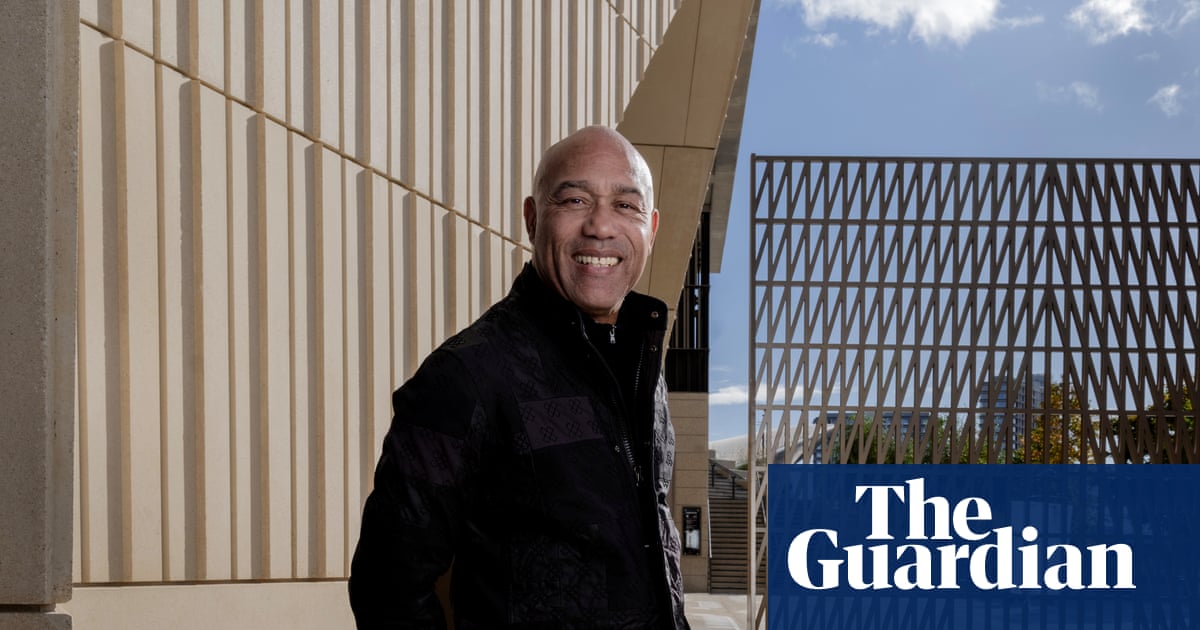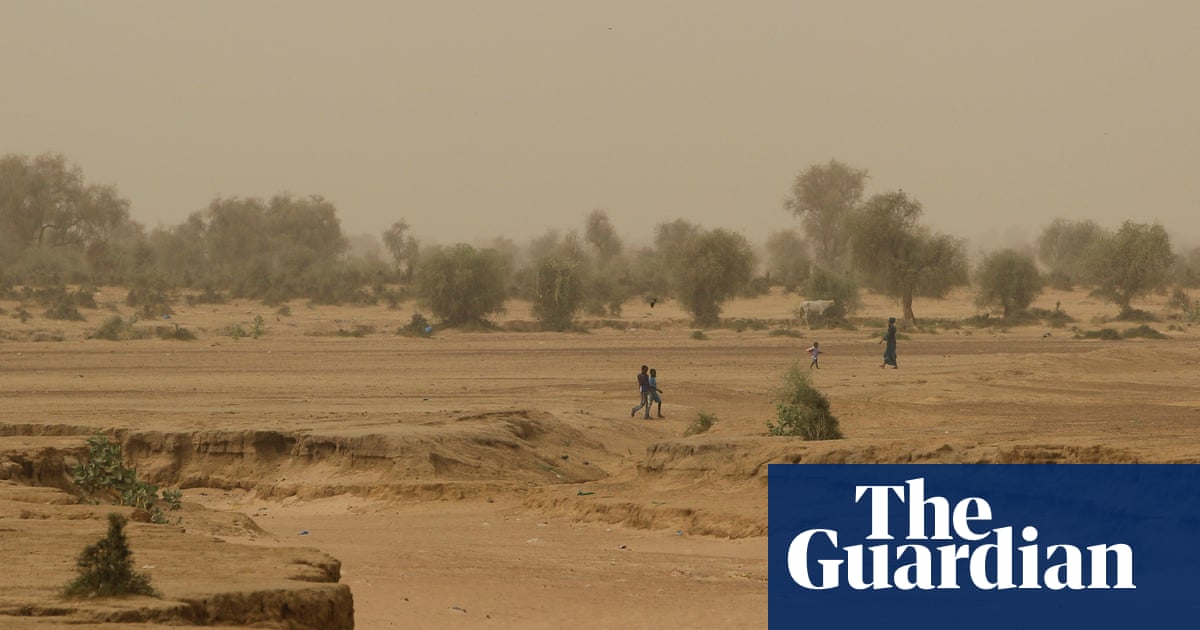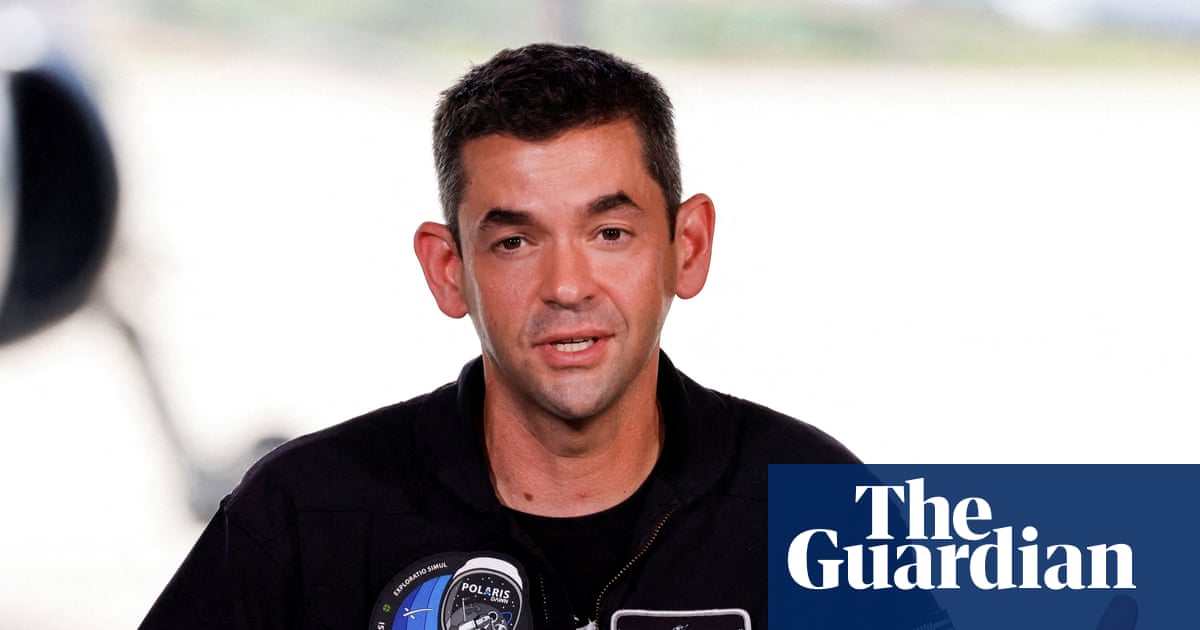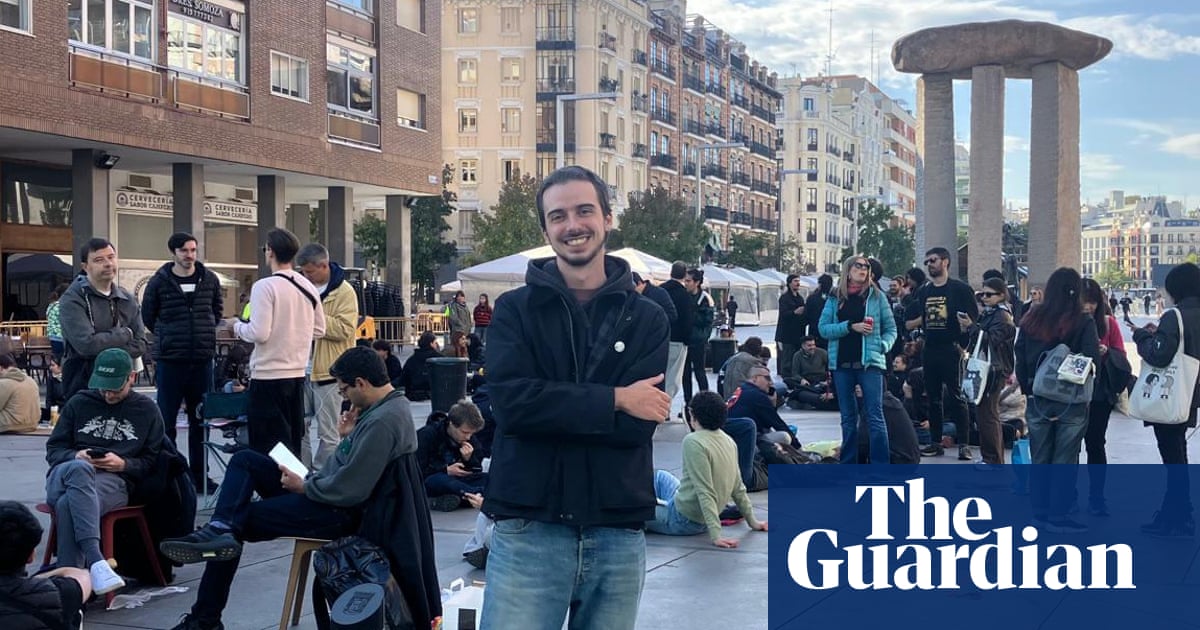It has been a second summer of riots in the UK targeting asylum seekers and immigration. And while there is something stomach-sinking about the mood and the rise in racist rhetoric, it is also worth remembering that we are in the middle of a global phenomenon, and that there is resistance. I spoke to the author and former Guardian columnist Gary Younge about why this moment feels different to those before it.
‘Not all xenophobia is racist but all xenophobia feeds racism’

An anti-immigrant mood is building across Britain, fuelled by the rightwing Reform UK party and longtime agitators such as Tommy Robinson, an ex-convict and far-right activist, and it is bleeding into racism that is experienced by many. Robinson posted a video on social media of a Black man playing with his white grandchildren, suggesting there was something sinister at hand, and unleashed a wave of hate against the man – who was subsequently suspended from his work after being falsely labelled a paedophile, and became too afraid to leave his house.
“I don’t think these are anti-Black riots,” Younge explains. “I think they are primarily xenophobic and Islamophobic, but there is no way to hermetically seal these positions.” And in Britain, “race and immigration have always been linked. So much so that when the public opinion pollsters Gallup used to ask … what were people concerned about, one of the options would just say ‘race/immigration’.”
Concerns about incomers are rarely, if ever, ringfenced from race. Younge says: “It’s not that when they talk about immigration they necessarily want to talk about race. It’s that talking about immigration in this country has been a way of talking about race. Borders between race, migration and religion are really porous.” Brexit, for example, was ostensibly about eastern European immigration, he adds, but after the vote there was a sharp rise in racist attacks against non-white racialised minorities.
Even when race seems to not be the main issue, it is triggered in certain scenarios. “The kind of [Black] people in the national football team aren’t understood to be part of the problem, but wait until they miss a penalty and you see how quickly they become that,” Younge says. When the England striker Marcus Rashford missed a penalty in the Euro 2020 final, a large mural of him in Manchester was defaced with racist graffiti.
The Labour party in crisis
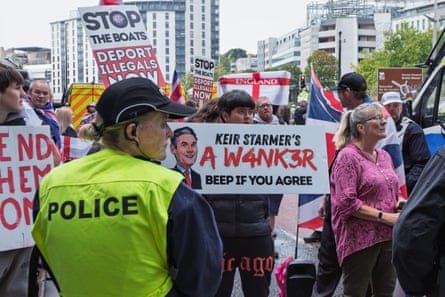
I suggest to Younge that a tepid response from the political establishment has been a factor in making this moment appear unchecked. There are no addresses to the nation, no serious recognition of how frightening it feels to people that there are regular riots, protests and rampant racism online. “They go in and out of it,” Younge says, referring to liberal politicians, and the British Labour government in particular. “They discover racism like teenagers discover sex, and they keep on discovering it. It’s like no one’s ever thought about it before; they don’t know what they’re doing but they’re really keen, and they’re not very good at it. It becomes just a thing of the moment.”
But more than the inability to consistently engage with racism as an integral part of xenophobia and anti-immigration, Younge suggests the response is even “craven”, omitting any mention of race. “Every now and then, there will be some kind of saccharine or symbolic engagement, like taking the knee, but no one wants to talk about where this stuff comes from.” Labour only sees peril in talking about race, but the real peril for the party is that a core part of their support in the cities – ethnic minorities – is collapsing, he adds.
‘They are all feeding off each other’
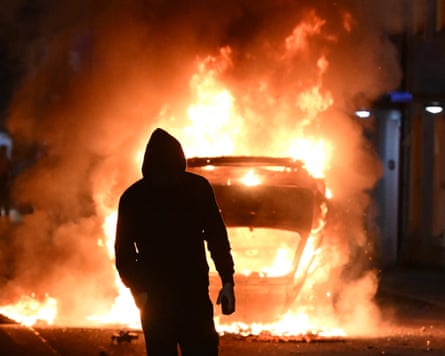
One thing that differentiates this moment from others before it, where racial tension intermingled with xenophobia, is the global aspect of it. The same talking points about “the great replacement” of “Indigenous” white people, and the perceived threat to women in Europe, particularly from Black men, are showing up on my social media feeds and in discourse in the US, Ireland, the UK and across Europe. This is an important new feature, Younge says. “They’re all feeding off each other” – even when the situations in these countries are not analogous.
after newsletter promotion
For example, conversations about diversity, equity and inclusion (DEI) – a US import – do not necessarily apply in a UK context, where DEI is not as widespread. And Irish anti-immigration protesters have been rallying behind the replacement theory, a talking point previously absent from the political lexicon. Younge says this is part of a larger reconfiguration, where countries such as Ireland, which has an exceptional position of being a “white country with a sustained history of colonial oppression, is becoming a European in the whitest possible way”. There are parallels between Portugal, Spain, Italy and Greece, which were exporters of people for decades. Ireland fits in with a group of southern European countries that have reimagined themselves as white, erasing their own histories of migration.
Resistance to the ‘whitelash’
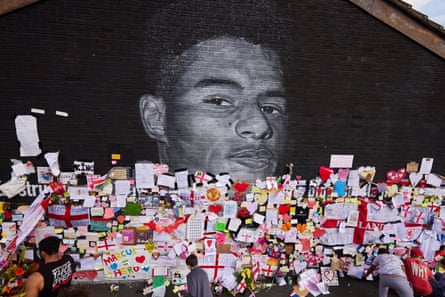
Though it’s impossible to gauge how large the movement is, the real-life stuff is scary, Younge says. “Look at the votes, look at the marches, look at the protests. People who are against Tommy Robinson far outnumber those who think he’s awesome. But is that the best we can do?”
And yet, Younge says, “there is still resistance, and that’s an important thing to insist on”. A regular feature of riots in the UK has been an equal or larger cohort of anti-racism protesters. Those protesting against immigration are opposing a “whitelash to progress that was made; ground that was claimed after Black Lives Matter”. And even though we’ve not quite been here before, particularly on a global scale, there are nuances that need to be understood to address the problem, he says.
The way racism repeatedly floats to the surface is an opportunity for liberal governments to understand that they cannot be squeamish about engaging with such ideologies if they are to combat the anti-immigration sentiment that empowers rightwing parties. Everything is related. “Not all xenophobia is racist but all xenophobia feeds racism,” Younge says. “These distinctions actually matter. This is a moment to try to understand that, because it describes the nature of the beast, and therefore how we should relate to it.”

 1 month ago
64
1 month ago
64
